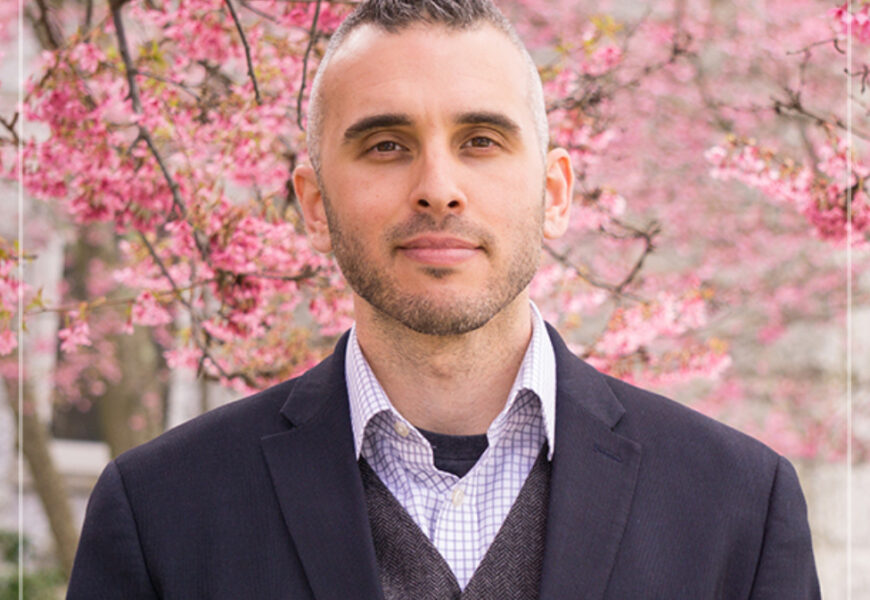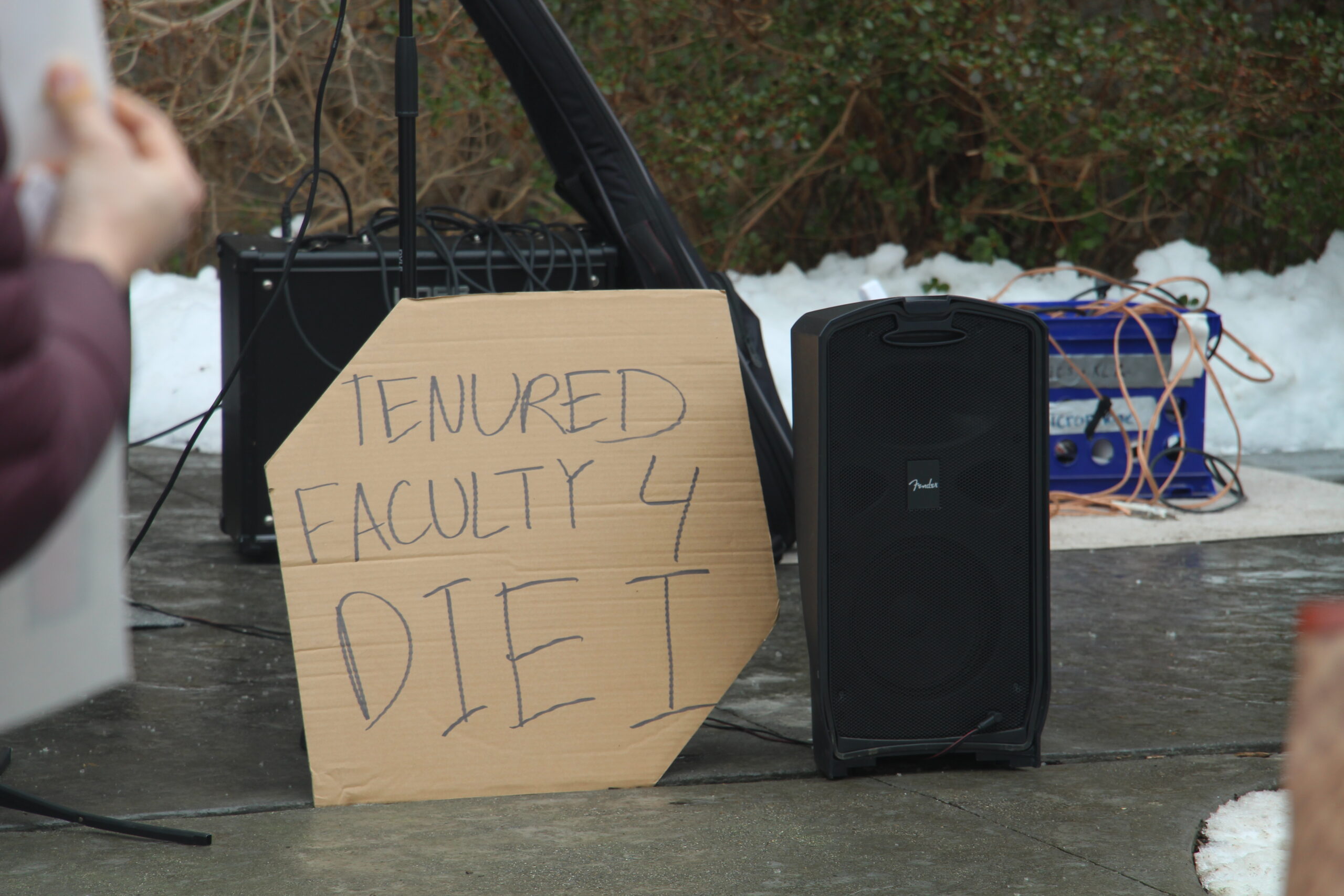Photo courtesy of Connecticut College.
Professor Ross Morin, Associate Professor and the Chair of the Department of Film Studies at Connecticut College, has a new short film out titled ¡Comé! (Eat!). The short film was purchased by HBO and released by the streaming service over the summer. According to The Day, who spoke to Morin in late September, shooting for the film took place in 2019 over the course of two days in Lakeland, FL. The ten-minute film follows the story of a young Puerto Rican girl who brings a native Spanish dish into her class. The aftermath of bringing in the dish leads her on a journey of self-discovery. I spoke with Professor Morin who is currently on sabbatical about his short film and how it reflects his position at Conn.
Has the process of HBO Max acquiring “¡Comé! (Eat!)” affected your perspective on filmmaking?
“I’m so used to screening at festivals…but I have never had my movie seen by this wide of an audience. I have been getting emails from people I have never met or never heard of from around the world, asking about the movie or engaging with me about it and that’s tremendously exciting to see. It’s almost like my work can have greater resonance than I have ever expected so I think that’s one thing that I have learned. President Bergeron has always been really good to me and she always says that we all need to think bigger, and this is a great example of how I’ve never thought to think this big. It’s really cool to see that my work can be out there like this—it has changed my perspective on that. I have learned a lot more about how the industry and independent filmmaking works in general about representation, even having sales representation and how they work in studios to get work distributed so I have just learned so much in this process.”
I’ve noticed that compared to your past work, there is sort of a horror theme that you’ve been exploring, what made you switch your usual genre of horror? Or, is there more of a similarity between your past work and this work?
“I’ve been interested in horror as a way of exploring what it means to be an outsider and then what it means to be normal. I think my films are always very interested thematically in what it means to be normal, part of the mainstream, part of the dominant ideology, or to be in some way some sort of an outsider. ¡Comé! (Eat!) is very much about those exact same themes even though the genre is different; it’s still exploring something that is very important to me about what it means to be an outsider versus normal… This “normal” thing is super dangerous, one of the most dangerous things that there is, I think. Just the idea of normal and what’s normal is natural in some way and the way that [normalcy is used] to oppress people is a huge part of my work as a teacher, an activist and a filmmaker. So the film is actually very much in line with my work, it’s just a different genre.”
Have there been any past films or filmmakers that inspired you to reconstruct normalcy and what that means?
“There are so many. The filmmaker who right now is doing what I always wished I was doing is Jordan Peele and what he does with his horror movies, which are horror movies, but they are also political theory and forms of social justice activism. They look like entertaining movies, but they are really doing the hard work, so he is somebody that I really admire right now. Then there are actually some TV shows that are inspiring me a lot, even more than straightforward cinema, like Sex Education. Sex Education is an amazing show that is both entertaining, but also really important politically. Then there is this other show called Love, Victor that’s just doing this incredible work that affects me, affects my heart and gut on a visceral level, but also what they are doing politically and what they are doing with their messages and themes is so powerful too and that really inspires me. I think earlier, maybe 5 or 6 years ago, the Wachowskis did this show called Sense 8 and that was one of the first times where I thought, this is what I want to be doing. I never thought that HBO would happen so I guess I don’t know where my career is going. I tend to think of myself as just doing more small things, but these are the people who really inspire me and I want to be playing in their playground anyway, although I don’t expect that I will ever have the means that they do, but you never know.”
Did you have any inspirations growing up when you were thinking about becoming a filmmaker? Or was your inspiration more to shift the narrative of what filmmakers back then were doing?
“It was certainly more rudimentary, at least as far as I understood my ambitions when I was a kid. I started making movies when I was 13 and they were just sort of derivative horror movies of like Scream or Halloween, so I was really into slasher flicks at that time, but even then what I think really inspired me was sort of the feminist angle that those films were dealing with, certainly there was the racial representation which was all white— it was a very white genre so I can’t speak for the way that Jordan Peele influences so many people now, but what horror was sometimes doing in a really complicated way as a certain type of feminism and a certain type of empowering of women that I was really drawn to. So I think my early films were infused with (even though I was really young to understand what I was doing) the sense of trying to show strong women protagonists and then later on my work was more about queer male protagonists, but it was always sort of queering of the mainstream ideology and what it means to be a hero. If my protagonist is of the dominant ideology and the dominant norms they are usually pretty hardcore interrogated versus somebody who is an outsider like a person of color, queer person, woman, somebody who falls into any number of underrepresented categories, they always triumph in the end. So I think I was sort of drawn to that when I was a kid. I connected to the way that horror movies seemed to be empowering people who were outside of the mainstream.”
I never thought of horror movies as a genre not having enough representation.
“Horror is traditionally a very conservative genre. I think in some way as a queer teenager in southern Maine where I grew up, I was thinking about why can’t this genre be something else? Why can’t it be more? Why does it always involve so much torturing? For example, for people to learn and improve in some ways, why does this genre have to be so conservative? What other nightmares could be explored rather than exploring the nightmare of the other, what about exploring the nightmare of the mainstream? I’ve always been flipping it even though I didn’t know that I was doing it which is what has drawn me also to the medium.”
Does that idea inspire you as a professor of Film Studies as well?
“Absolutely. When I was in grad school, I found the teachings to be pretty conservative as well and so I thought to be subversive in my teaching. I thought, what are the ways that I can teach filmmaking from a different lens? How can I queer the lens through which we teach filmmaking? The term queering, I’ve sort of used rather inquisitively for a bunch of different things whether it’s gender or sex or gender identity, or also race— I think is adjacent enough to that as well. I still wonder how can I, as a professor, continue to interrogate the mainstream and the idea of what is normal. It’s all sort of tied together, the work that I am trying to do is all the same, whether it’s teaching or filmmaking, and it all sort of has that same overall goal.”
In the article published by the New London paper The Day, you explained the nexus of becoming a business person and an artist. Do these two ideas contradict one another?
“I could talk for hours about this. I’m very nervous about calling myself an artist because I think that there is this sort of stereotype that an artist just kind of goes towards what feels right and maybe doesn’t think all that much, and maybe doesn’t plan all that much and doesn’t have to be all that organized. I know most people who are artists reject that as well, but I am always very skeptical about that and to be a filmmaker in particular because you are managing these crews of twenty to seventy to one hundred people, and you have to have every day planned. You have to have a business sense, you have to be super structured and all artists do in their own way, but I think especially in film and theater and dance where you have big companies and a lot of different parts, if you don’t know how to use spreadsheets, calculate overtime pay for your gaffer in the 11.1 hour, you will not be able to do your job, because you just over budget and if you over budget you can’t continue making your movie. So absolutely, you have to have a financial sense, a practical sense, you have to have sort of this science-oriented mind. I often think that film fits into this beautiful nexus of arts, humanities, and the sciences. It’s budgeting, organizing crews, it’s organizing minute to minute film shoots which is like organizing a massively long event. Even for a short film, every minute is planned, every meal is planned, the lodgings and transportation is planned. It’s a very logical-oriented sensibility that one has to have in order to be this type of filmmaker. I have also made movies where it’s just me and the camera where it’s very organic and I’m just feeling things out and I can let go of that side of my mind, but when that’s done I have to start submitting to festivals, thinking about marketing, work on the website, funding, PR, so you always have to have that organized sensibility when you’re a filmmaker.”
What are your long term goals for teaching and filmmaking?
“I think this HBO deal has provided me an opportunity to expand my imagination for what that might look like. Again, I grew up in rural Maine, my dad was a firefighter; I’m not used to any of this world of academia, art, or filmmaking, which is all new to me. I think my worldview is very limited. I grew up being very practical so I always like making sure I can pay my bills and finding a place to live. Now with [my] job [at] Connecticut College and with everything happening around me, and being involved within this very intellectual space. My best friends are philosophers, psychologists, and nuclear physicists. I don’t see bounds with what I can do and that’s a little scary to see how much openness there really is. It kind of reminds me of when I was in college about what I wanted to be when I grow up. I’m still asking myself that question.”
Is there any advice for viewers that are interested filmmakers about what they should take away from ¡Comé! (Eat!) about their own art and understanding?
“I’m always nervous to guide anybody’s interpretation too much. To me, the thing that I connect most to about ¡Comé! (Eat!) is the importance of the relationship between the student and the teacher, particularly amongst the student who feels like an outsider in some way. The role of the teacher and helping them feel accepted and proud of themselves is something that I’ve been connected to my whole life— it’s the reason that I am a teacher. The reason that I do what I do is because I have had teachers who made me feel safe and who have made me feel like my life was worthwhile, and I think ¡Comé! (Eat!) is about that—a teacher who helps this girl find acceptance and self-love, love for her family, and love for who she is—I think that is the most powerful.”










